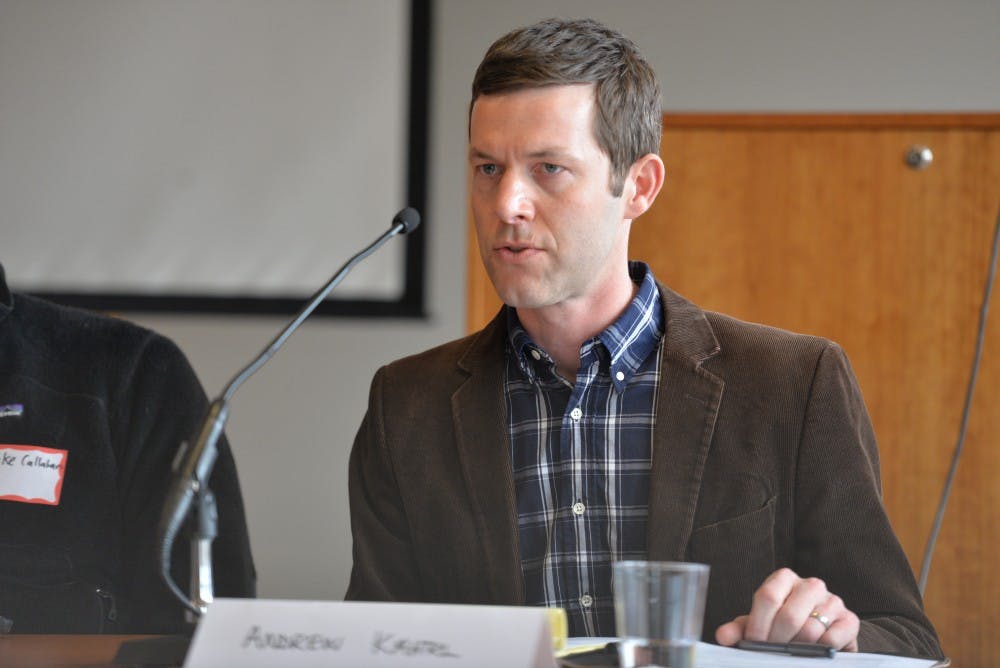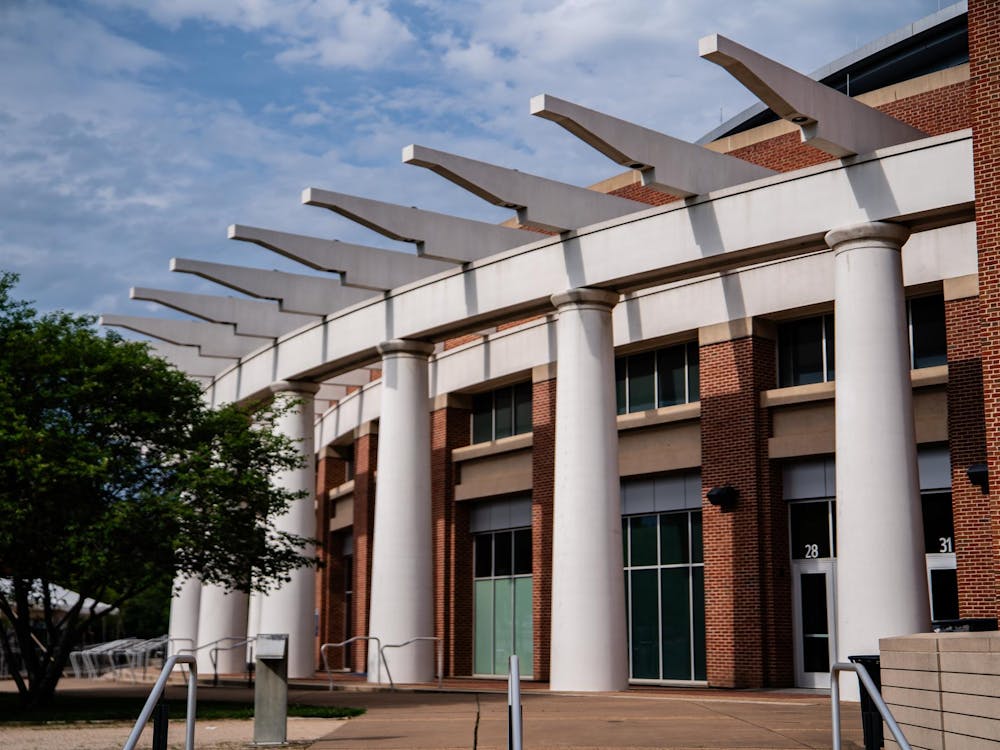The University hosted a conference on housing justice and affordability at City Space Saturday to allow for a wide variety of experts on housing policy from the local community and around the country to discuss the issue of affordable housing in Charlottesville. The event was funded by the Provost’s 2017-18 Flash Fund for projects toward “Achieving the Culture and Environment We Value.”
The Charlottesville Public Housing Association of Residents, the Legal Aid Justice Center, the Charlottesville Low Income Housing Coalition and the Grassroots Humanities Collaboration also co-sponsored the event.
The panel-led conference was entitled “Gentrification and Housing Justice: A Diagnosis, and Proposal” and centered around addressing the ways which the University could recognize and remedy its impact upon the availability of affordable housing in the local community and racial equality.
Among a total of four panels at the conference, the latter two focused on the impact of student housing upon the availability of affordable housing in the local community and the overall effect of students in Charlottesville.
Tony Romano — the organizing director of the national Right to the City Alliance which works to combat gentrification and the displacement of minority communities around the country — said American housing policy was rooted in racism.
“Inclusivity is the question of race,” Romano said. “We understand that white supremacy and racism has determined and shaped every single policy in this country since the beginning of time.”
In relation to the impact of universities upon affordable housing, Romano said most institutions do not value the presence of minority communities or view them as beneficial. However, Romano cited the University of Southern California as an example of activism leading to the donation of $20 million to the cause of affordable housing by the school.
“Universities … developers and governments work together as gentrifying forces,” Romano said. “The reason is they don't value those communities. Black communities don't matter. Black lives don't matter. So if everyone's displaced and they build beautiful buildings and white people come in, to them that's an improvement — they wipe everyone out and build student housing.”
Mike Callahan, principal planner for the Charlottesville-based EPR design firm, said it was important to examine the racist historical context of limited affordable housing in the local community. Callahan cited the destruction of the historically African-American Charlottesville neighborhood of Vinegar Hill to “revitalize” the area during the 1960s as an example of such history. In 1965, the City decided to demolish the homes of 139 African American families, 30 African American-owned businesses and a church in the Vinegar Hill neighborhood in an effort to redevelop the area as part of a larger plan for urban renewal in Charlottesville.
“As we’re diagnosing what's going in the community, it's important to keep some of the historical things in mind, it's how we got to where we are today,” Callahan said. “We have a history of very unjust housing policies, laws and lending practices that have really created a bad situation.”
Andrew Kahrl, an associate professor of history and African-American studies at the University, said the financial goals of the City are often at odds with promoting affordable housing. Kahrl specifically cited property taxes as tools for the displacement of minority communities in favor of urban development.
“The property tax historically and continues to serve as one of the chief agents of property dispossession, particularly the dispossession of African-American-owned property,” Kahrl said.
In reference to Charlottesville in particular, Kahrl said property taxes have been used by the City as a source of internal revenue due to its legal relationship with the government of the surrounding Albemarle County in which the city is unable to expand its boundaries into the county.
“Charlottesville cannot grow its way out of its own fiscal dilemma,” Kahrl said. “By law, the City’s boundaries are frozen per the 1982 agreement with Albemarle County.”
Kahrl added that the City’s reliance upon property taxes as a source of revenue was also problematic due to the University’s exemption from property taxes.
“So much of the real estate here in Charlottesville is owned by the University and as a result is tax exempt — that includes parking lots, the entire medical complex, the basketball arena [John Paul Jones],” Kahrl said. “U.Va. owns property here within the City that is estimated to be worth over $500 million that it pays no taxes on. The costs of those exemptions comes up to about $4.5 million each year. That's how much revenue the City is not getting through this tax-exempt property and that keeps getting larger each year.”
However, Kahrl said the University does pay a yearly service fee of $33,000 to the City or about one percent of the value it would otherwise be paying to the City through property taxes.
Kahrl cited the relationship between Brown University and the City of Providence, R.I. as an example of a city requiring increased annual payments from a university to compensate for the school's impact upon the community.
Harold Foley, a Charlottesville native and an organizer for the Legal Aid Justice Center, said the University needed to construct more student housing to reduce the housing burden upon the Charlottesville community.
“One of the biggest problems we see with public housing is not only the problem with affordable housing but the problem with universities not building housing for students,” Foley said. “When you don't build housing for students, people who are or want to live in Charlottesville will get priced out because students will pay any amount of money to live in Charlottesville.”
However, the University is currently moving forward with plans to redevelop Brandon Avenue to include a 300-bed upperclassmen student housing complex that is expected be ready for occupancy by fall 2019. The University intends to redesign the street and its adjacent properties as part of a master plan to develop the area as a “green street” and connect the South Lawn complex to the U.Va. Health System.
In the final panel about the broader public role of universities in their respective communities, local attorney and activist Jeff Fogel said the University still owed the African-American slaves who built the the institution.
“You have a University that was founded by a rapist and a slaveholder,” Fogel said. “If you had slaves build your University, you have to pay back the wages they should have earned.”
Fogel said efforts by both the City of Charlottesville and the University to address its racist legacy through memorials were insufficient. The University is currently in the planning process for the construction of a Memorial to Enslaved Laborers to honor the slave laborers who contributed to the construction and development of the University. The memorial will be located across from the Corner and East of Brooks Hall
“The University has always been willing, as the City has, to put up plaques, to put up monuments, to put up memorials,” Fogel said. “That’s not going to do anything for the very people that suffered at the University or their progeny.”
Fogel added the University could easily allocate funds towards racial justice causes with little financial impact upon the school but said that increased corporate funding has prevented administration from pursuing goals related to such goals.
“You have to be thinking about the relationship between the University and the community in which it sits,” Fogel said. “The University still doesn't get it, and that's part of the problem.”
Don Gathers, former chair of the now-defunct Charlottesville Blue Ribbon Commission on Race and Memorials, delivered the closing address for the conference and focused upon the element of racial inequality in housing policy.
“We need to figure out how we translate what we've gotten today into actual action,” Gathers said. “We sit … right on the precipice of this vast chasm of racism here in the City, and we've got figure out how to bridge the gap.”
Gathers said that even though overt racism is no longer legal in modern day housing policy, racism often manifests itself through more indirect means which he called “backdoor gentrification.”
“Open housing discrimination is no longer legal,” Gathers said. “Overt land takeover would raise too many eyebrows and suspicions. Now the course calls for buying up property in vastly minority populated neighborhoods under the auspices of revitalization and urban renewal.”
Gathers said that modern racism operates in a complex manner that is not as visible as in past decades but ultimately shares the same goal.
“Racial inequalities in this country are as real as the demons of their not too distant cousins — white supremacy and white privilege,” Gathers said. “They all perform in a sick, twisted concert that has only one goal — the further oppression and demonization of all persons of color wherever they may exist.”
To read about the other panels at the Housing Justice summit, check out The Cavalier Daily’s coverage here.







